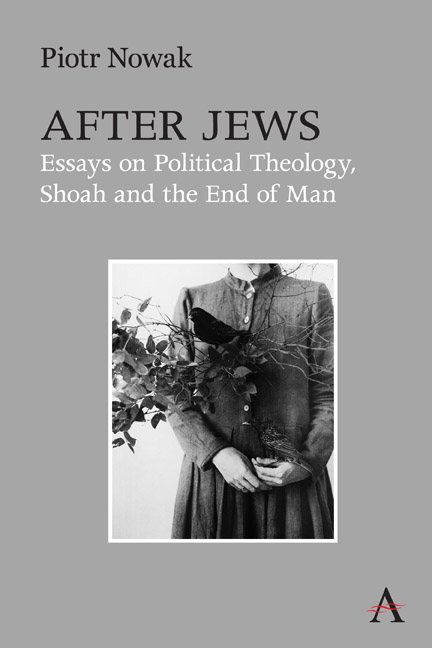Book contents
- Frontmatter
- Contents
- Preface
- Chapter 1 The Chosen Ones
- Chapter 2 The Secret of the Scapegoat
- Chapter 3 Making a Jew into a Christian
- Chapter 4 There Should Be Time No Longer
- Chapter 5 To Look Upon His Face and Yet Not Die
- Chapter 6 Ex oriente lux?
- Chapter 7 Pilloried by Necessity
- Chapter 8 German Rubble
- Chapter 9 Long Live!
- Chapter 10 The Living against the Dead
- Chapter 11 The Child of War
- Chapter 12 Plenty Coups and the End of the World
- Chapter 13 They Refugees
- Chapter 14 The Remainder of Christianity
- Bibliography
- Index of Persons
Chapter 5 - To Look Upon His Face and Yet Not Die
Published online by Cambridge University Press: 13 May 2022
- Frontmatter
- Contents
- Preface
- Chapter 1 The Chosen Ones
- Chapter 2 The Secret of the Scapegoat
- Chapter 3 Making a Jew into a Christian
- Chapter 4 There Should Be Time No Longer
- Chapter 5 To Look Upon His Face and Yet Not Die
- Chapter 6 Ex oriente lux?
- Chapter 7 Pilloried by Necessity
- Chapter 8 German Rubble
- Chapter 9 Long Live!
- Chapter 10 The Living against the Dead
- Chapter 11 The Child of War
- Chapter 12 Plenty Coups and the End of the World
- Chapter 13 They Refugees
- Chapter 14 The Remainder of Christianity
- Bibliography
- Index of Persons
Summary
Rabbi Ben Levi, on the Sabbath, read
A volume of the Law, in which it said,
“No man shall look upon my face and live.”
And as he read, he prayed that God would give
His faithful servant grace with mortal eye
To look upon His face and yet not die.
Poseur, scribbler, provocateur, seducer, trifler, uncompromising theologian, thinker of such broad scope that the shrewdest rabbis of his time could not follow—these are all masks, costumes in which Jacob Taubes chose to dress up his uninhibited thought, his unique way of being. A little kitschy, always provocative, undoubtedly a genius, he saw everywhere “signs of the approaching End”; at the same time, as one can tell from his chaotic writing, he wanted—like Rabbi Ben Levi—to capture the first moment of the apocalypse, to spot the rising tide and even to outstrip it.
Curriculum Vitae
He was born in 1923 in Vienna into a rabbinical family. In 1936 the whole family moved to politically neutral Switzerland where Taubes's father was appointed chief rabbi. He completed his education in Basel and Zurich. In 1947 in Zurich he defended a doctoral thesis on Messianic ideas in Western culture (Abendländische Eschatologie), which he then published as a book—the only one published in his lifetime. He became friends with Armin Mohler, the author of the term “conservative revolution,” a would-be SS man (they did not want him), later the secretary of Ernst Jünger. At the same time he maintained close intellectual ties with the Protestant theologian Karl Barth and with Hans Urs von Balthasar, the influential Catholic priest and prominent theologian. In 1949 he was employed at the Jewish Theological Seminary in New York. He attended Leo Strauss's seminar held at the New School for Social Research. While in the United States, he also met Hannah Arendt and Paul Tillich. It's a small world.
In 1951 Taubes was awarded the Warburg scholarship and went to work at a university in Jerusalem. He was admitted by the rector of the Hebrew University, Hugo Bergman, who would later describe Taubes's intellectual abilities as “absolutely exceptional” while pointing to his characteristic “disreputable behavior […] his chutzpah and his verve.”
- Type
- Chapter
- Information
- After JewsEssays on Political Theology, Shoah and the End of Man, pp. 63 - 80Publisher: Anthem PressPrint publication year: 2022

